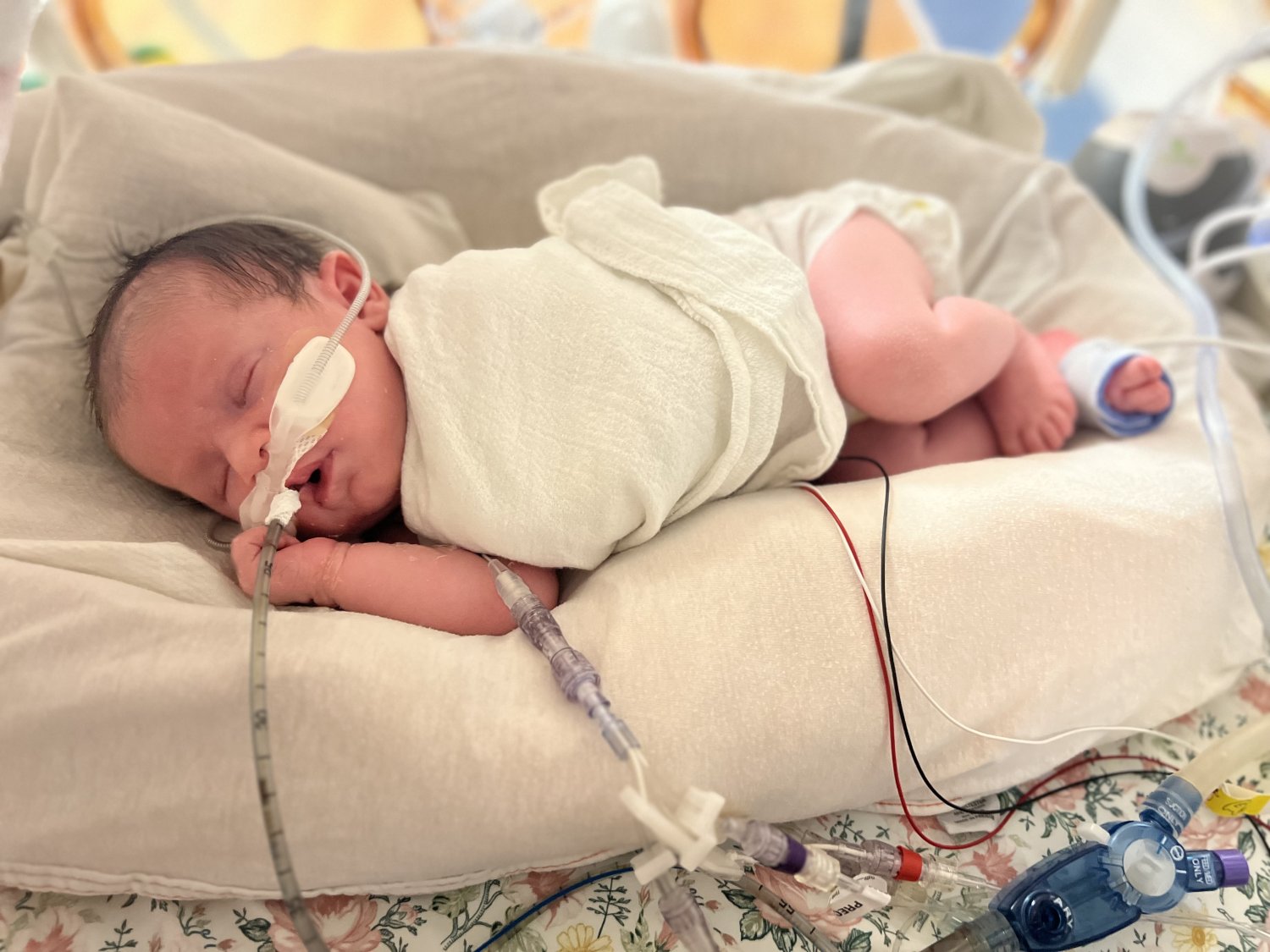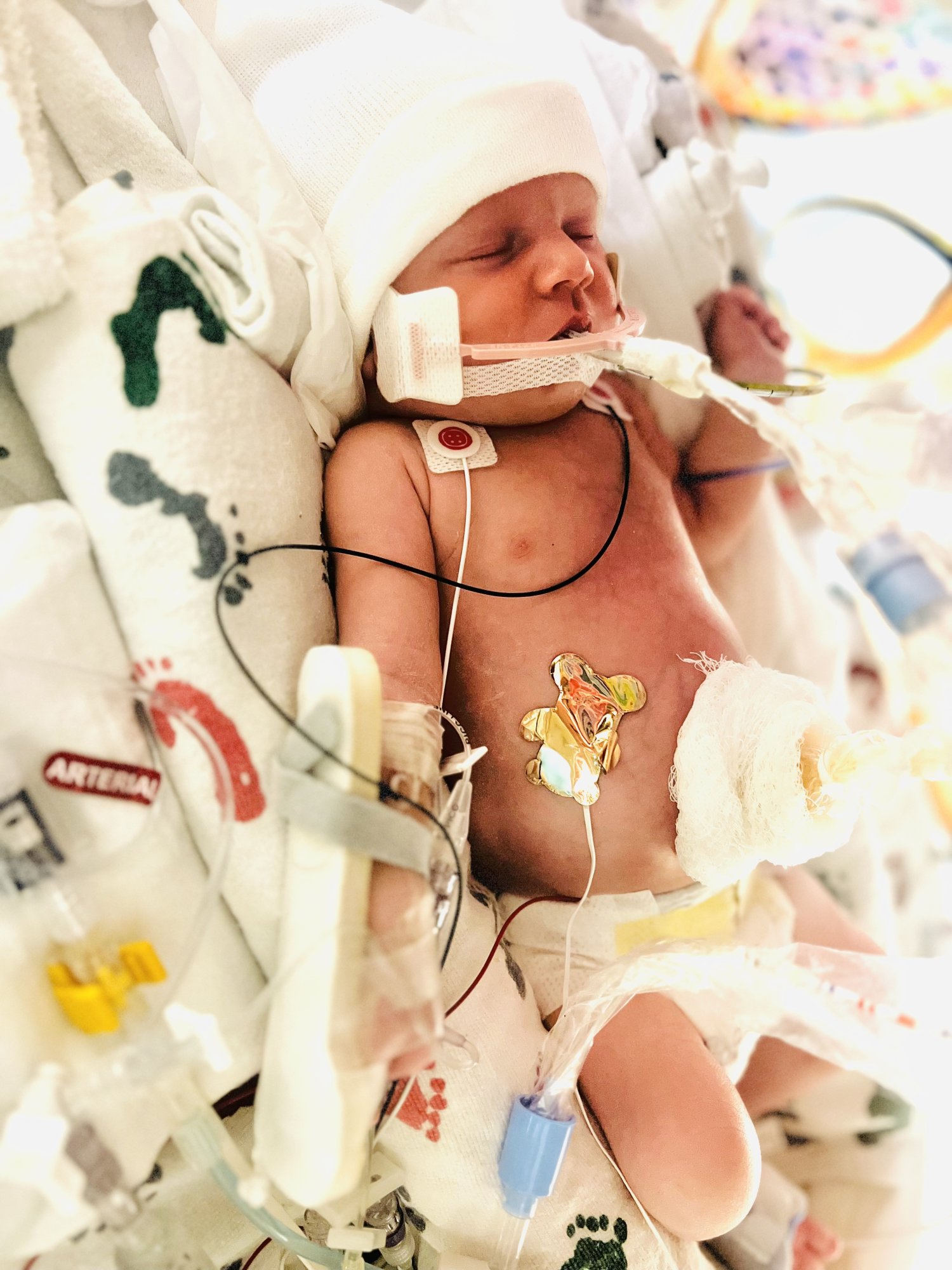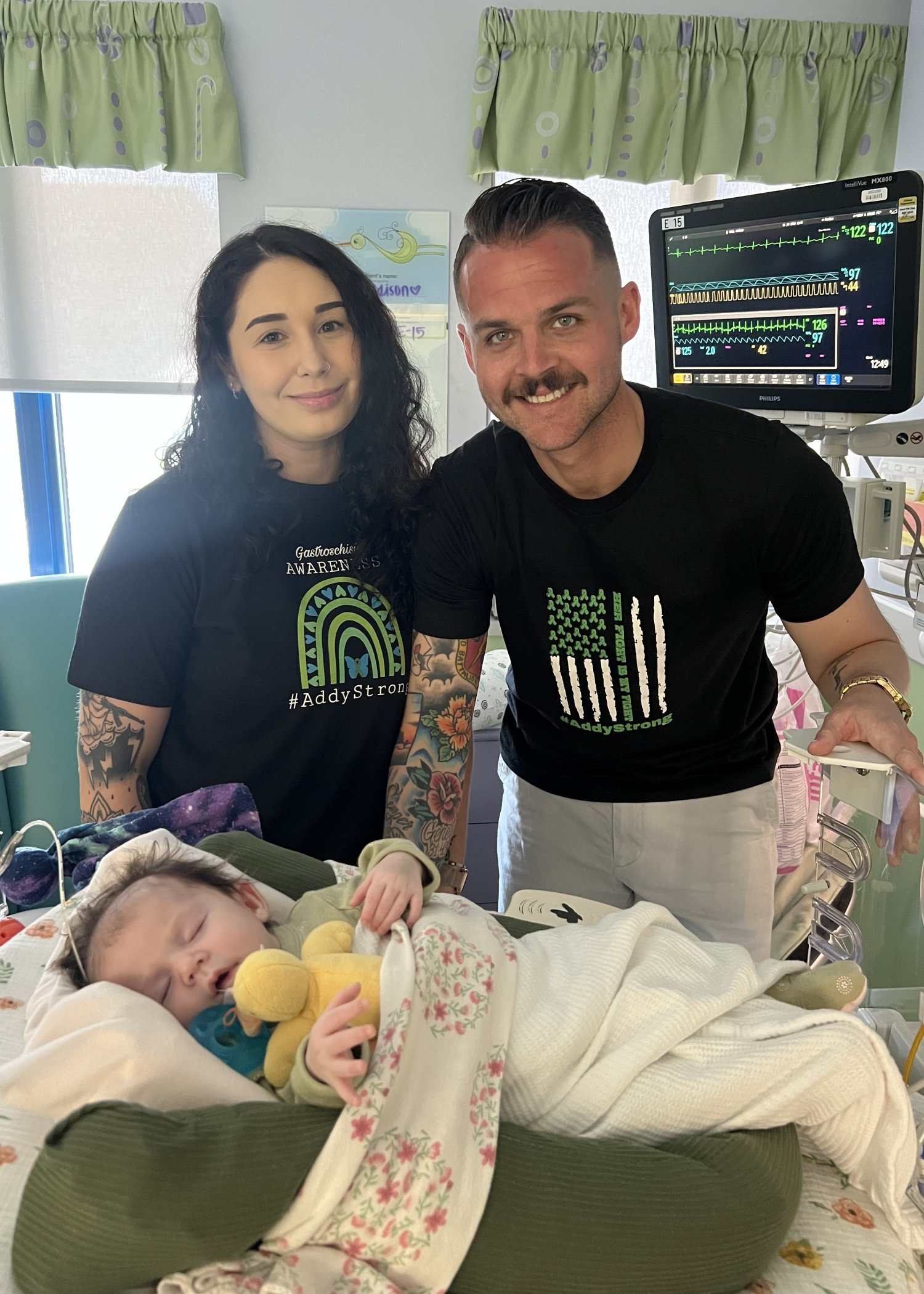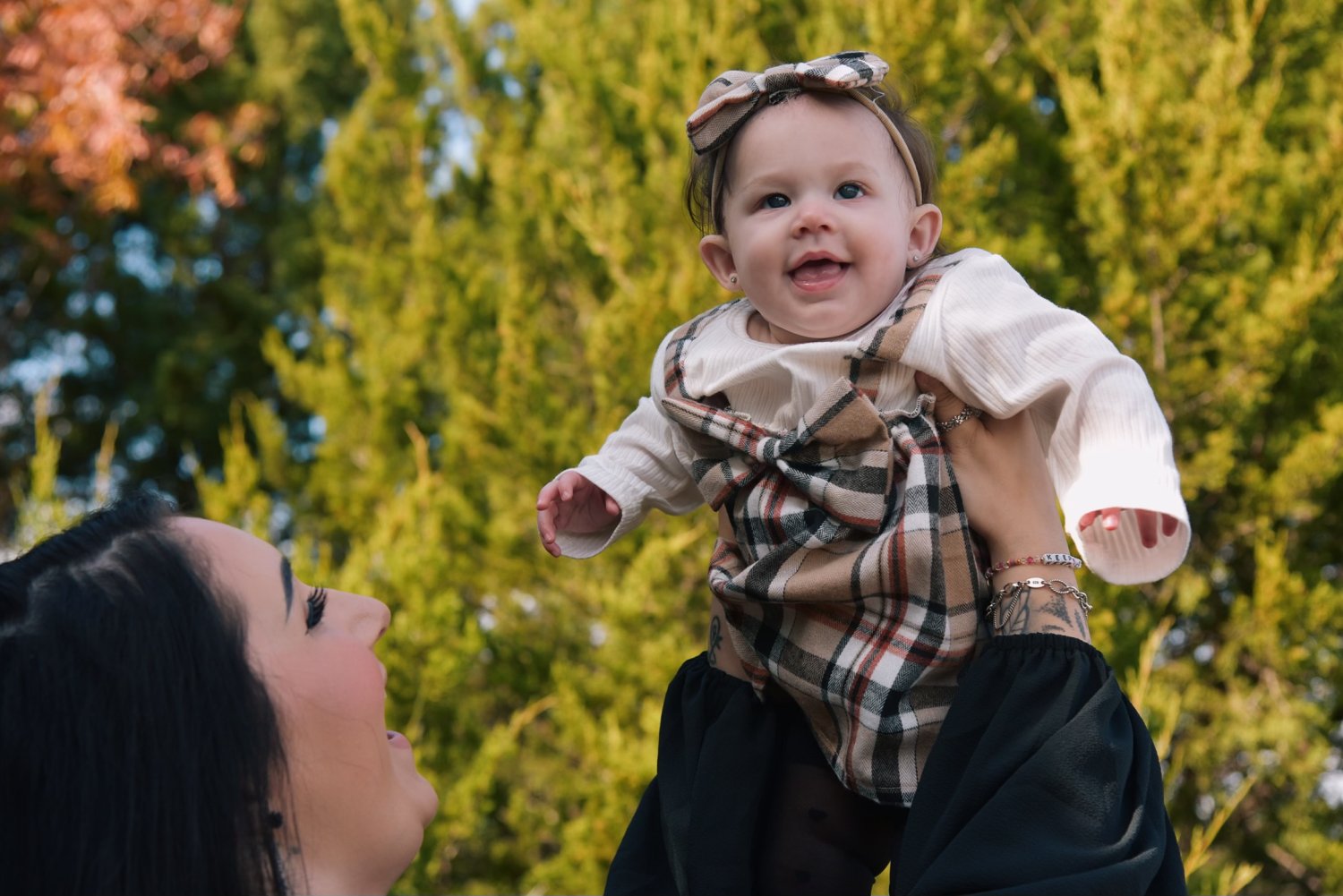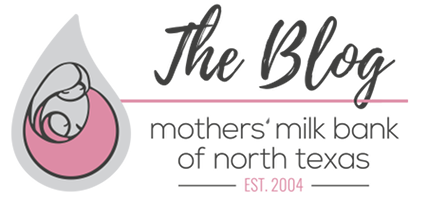Celebrating Two-Time NEC Survivor and Donor Milk Recipient, Addison
05/31/2024
To close out May, NEC Awareness Month, we are highlighting the extraordinary story about Addison, who was born with an abdominal birth defect and is a two-time survivor of necrotizing enterocolitis (NEC), a life-threatening intestinal disease.
Eleven-month-old, Addison, currently receives donor milk at home through the outpatient program at Mothers’ Milk Bank of North Texas. Her mother, Hailey, explains how Addison’s diagnosis and subsequent medical care began at an ultrasound appointment. Hailey says, “At 31 weeks pregnant, for my birthday, I decided to get Addison’s 3D sonogram done so I could see her face for the first time. As soon as the sonographer started our session, I immediately recognized that something was not right.”
Hailey was sent to the emergency room, where scans confirmed her baby had a rare birth defect called gastroschisis. According to the CDC, gastroschisis causes a hole in the abdominal wall, allowing intestines to extend outside of the baby’s body. The birth defect is estimated to affect one in 2,000 babies.
While typically discovered at an 18-to-20-week anatomy scan, Addison’s case was identified later in pregnancy, leaving little time to prepare. Now considered high risk, Hailey had to quickly switch doctors and was referred to a NICU GI surgeon. Hailey says, “After being induced at 37 weeks, Addison was born on June 9, 2023, and had surgery to place her intestines back inside her stomach.”
During her three-month NICU stay, Addison battled NEC twice. The recurring intestinal inflammation and infection were attributed to Addison’s intolerance to formula. Stress and breast infections among other obstacles made it impossible for Hailey to provide her own breastmilk. At this point, Addison began receiving donor milk.
Hailey explains, “Since being on donor breastmilk, Addison has not had any other GI issues. The second time Addison had been diagnosed with NEC; I had the worst fear that she wasn’t going to pull through this time. She was receiving blood transfusions and had a constant tube down her throat drawing the fluid and secretions from her intestines, and even a catheter was placed to prevent her bladder from bursting due to the intestinal swelling.”
To the women who donate their extra breastmilk, Hailey says, “I would like you to know that I have never been more grateful. I felt like such a failure because I could not do the one thing that I should’ve been able to do for my daughter. While working full time, and raising two other daughters at home, I felt defeated. Addison being on donor milk has kept my daughter home for good, and that is something I could never take for granted. Thank you to the mothers who donate, you truly are helping babies and families more than you know.”
Learn more about NEC here.

